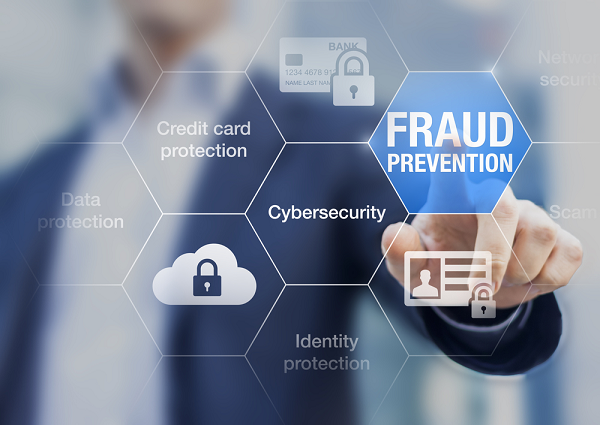Teens and Young Adults are at High-risk for Online Scams
Stacey J. Drubner, JD, LICSW, MPH

EAP ask the Expert: Daniel J. Coleman, Senior Investigator – Special Investigations Unit – MGH Police and Security
According to the FTC, scams affect all age groups, but in different ways. There is considerable focus on the elderly being taken advantage of because hackers capitalize on their lack of comfort with technology and the number of financial resources involved. Many might be surprised to learn that teens/young adults are also highly vulnerable to online fraud.
- The rate of people under the age of 20 falling for scams is the highest of all groups. A Social Catfish study on the State of Internet Scams reported that teens and children show the largest percent increase (nearly 2,500%) in money lost, from 2017 to 2022
- According to Deloitte, 14% of Gen Z (ages 11-26) respondents reported that their location information was misused
For this month’s feature, we turn to Dan Coleman, from MGH Police and Security, to better understand this concerning trend and how to counteract the risks and impacts.

Why is this Population So at Risk?
 Many factors make teens and young adults good targets for fraudsters. Dan explains that they have constant online access to phones, tablets, computers, and gaming. The more time spent online, the greater the exposure to potential risks. Additionally, this population:
Many factors make teens and young adults good targets for fraudsters. Dan explains that they have constant online access to phones, tablets, computers, and gaming. The more time spent online, the greater the exposure to potential risks. Additionally, this population:
- Is so familiar with technology that they feel overconfident about their level of risk
- Wants to be independent, and may not be open to input about warnings
- Tends to be fairly trusting
- May not be experienced enough to anticipate or spot threats
- May be vulnerable to those who take advantage of their loneliness or lack of connection to others
- Prioritizes instant gratification (for example, immediately purchasing an item they really want) over taking the time to considering authenticity of the source
- Often gets information and news from unreliable sources
- Uses platforms such as social media, gaming, and shopping, which have multiple vulnerabilities
-According to the FTC, nearly 40% of 2021 fraud loss reports by those aged 18- 29 originated on social media
Common Types of Scams and Vulnerable Platforms
We asked Dan why platforms – X (Twitter), Instagram, texting, and a host of ever-growing apps are so vulnerable to fraud.
- Some of these platforms have limited protections
- Kids don’t take advantage of available security measures
- Hackers know how to manipulate these platforms (and their users) to their advantage

Below we list some of the most common targets and types of scams (and how to prevent them). It’s important to encourage teens and young adults to learn about the risks and steps that can be taken to protect their identity, finances, family, and emotional well-being.
- Social media
- Online gaming
- Imposter scams
- Dating apps
- Only Fans sites
- Employment opportunities
- Credit cards
- Health and beauty
- Webcam and remote access
- Student financial Aid
- Cryptocurrency
- Shopping
- Sextortion
- Fake package delivery Texts
Impacts of Fraud

Although the total impact is not measurable because many instances of fraud are not reported, there are many known short and long-term consequences of being the victim of scammers.
Mental health, functioning and safety
Dan indicates that the mental health impacts from online incidents are significant with this population. We need of be on the look-out for depression, anxiety and even suicidality.
- Many teens and young adults are reluctant to speak up due to embarrassment or fear of getting in trouble. Suffering in silence can be devastating
- Sometimes being hacked makes kids vulnerable to bullying or shame, for example because of compromising photos being posted
- There may also be other impacts on:
-School or job performance
-Interest in activities
-Relationships with friends and family
Kids may also get into situations where their safety is at risk, particularly if they connect with individuals who are not who they say they are or have bad intentions. This is especially true for kids who feel isolated or have bad self-esteem.
If you have concerns about your teens or young adults, engage them and consult healthcare experts as necessary.
Reputation
Problems can arise when individuals unwittingly repost, click on or like fake, suspicious or unkind posts. This can lead to accounts being opened in their name, without their knowledge. These accounts can be used for fraud or other negative outcomes. Dan points out that in some cases, teens and young adults can be viewed as assailants or bullies themselves. Because online footprints can be everlasting, this can affect college and career opportunities.
Financial & Identity
Research indicates that older adults who are scammed have the most significant financial impacts, but teens and young adults are also vulnerable to loss of money, identity theft and the threat of losing control of devices. Dan points out that the risk may transfer to parents and families, especially in cases of linked credit cards and bank accounts and shared computers or mobile device services.
Suggestions to Prevent Fraud
What can parents, teens and young adults do to avoid being on the wrong end of a fraudster? Dan stresses that the most important step that parents can take is to start and keep an open dialogue. Let kids know that they can discuss any concerns they have with you. Assure them that they will not be judged or punished. As tempting as it is to be a cool, fun parent, it’s up to adults to be adults, in order to keep teens and young adults safe.
Each parent must identify the right level of assistance for their child’s needs, age, and personal style. Find a balance between providing guidance without being too invasive. A possible compromise is to make sure kids use the highest level of security for apps but allow them to have some privacy and choice with content. Of course parents will most likely have less impact on older children who are out of the house in college or starting careers.
Otherwise, Dan recommends:

- Teaching kids baseline skills to be a good citizens and respectful, in-person and online
– Personal accountability and responsibility and possible negative consequences should be the same in any context
– If you don’t think it’s OK to say something face to face, then it’s NOT OK to do so online
– The FTC offers some internet etiquette guidance - Helping kids to understand that their behavior and attention to safety can impact not only their own future and goals (college, military service, career) but also the security of the family’s home, finances, and devices
- Encouraging use of the same situational awareness that we practice outside of cyberspace. This means understanding the platforms being used, where the risks are and how to use them safely
- Teaching kids about the types of scams and how they work
– Use real life examples from dependable media and the local community to provide education on consequences
– Use the Entertainment Software Rating Board (ESRB) ratings to review gaming platforms - Teaching kids to be critical thinkers. Provide guidance on determining what is real/valid and what is most likely social media fantasy or inaccurate news
– This entails a discussion of artificial intelligence (AI) and how to use it and determine when others are using AI to create their content
– Stress that social media platforms, such as Facebook are not the most reliable news sources - Teaching kids the value of patience
– Be careful with purchases. If no legitimate site has a certain item, then someone offering this item (immediately or for a cheap price) is probably not a real seller
– Be conservative with sharing information. Take the time to know who is on the other end of your personal data and why they want this information
– Take a step back if you suspect fraud. Take the time to evaluate and don’t react too quickly. Hackers count on panic to succeed - Taking action to prevent issues in the first place
-Use Password protection and 2-factor authentication
-Install Antivirus and Malware Software
-Take precautions when using social media sites
-Understand website tracking
-Perform all updates on devices
-Encourage kids to find out about and address what is on the internet about them via Google, Nuwber and opting out of sources of personally identifiable information as relevant
-Bookmark Have I Been Pwned? to assess if they have been put at-risk due to an online account being compromised as part of a data breach
Responding to Scammers
Below we share some concrete steps you can take to respond to and minimize the impacts of potential fraud. In general:
- Make sure kids know who (you, a friend, a coach, or teacher) they can report concerns. Assure them that they will not be punished or judged
- Don’t panic or react without an informed plan for responding. Failing to do so can result in more significant consequences

- Run virus scans to check for potentially malicious software installed by the scammers. Consider having your computer professionally cleaned
- Contact your financial institutions immediately by using the number on the back of bank cards or by visiting the institution in person. Always go to the official website. Do not not respond to an email or phone call directly
- Review your credit reports to make sure everything is accurate
- Use Fraud alerts and security freezes
- Dispute any inaccurate information you find in your credit report
- Change all passwords if the scammer had access to your devices
- Expect additional attempts to contact. The scammers often share their victim database information
- Keep all original documentation, emails, faxes, and logs of all communications
- File a report with your local police
- Document a complaint with the FBI’s Internet Crime Complaint Center
- If you think your identity might have been compromised, file an identity report with:
– The Federal Trade Commission; 1(877) FTC-HELP (1-877-382-4357) or TTY 1-866-653-4261
– The Police - If an issue involves other kids from school, you can report it to the school as relevant
- Address Unwanted Photos Online
- Share fraud risks with others via social media, word of mouth or the FTC; s “Pass It On” Program
Other Resources
- Full EAP Fraud and Consumer Protection Resources
- EAP News Feature – Stay a Step Ahead of Predators and Avoid Being a Victim of Fraud
Help from the EAP
The EAP offers free and confidential services for employees and immediate household family members. EAP records are separate from medical and HR records. Contact the EAP at 866-724-4327 or request an appointment via our online form for confidential assistance. In-person appointments are available at the following locations. Phone or Video (Zoom) appointments are available from all locations.







